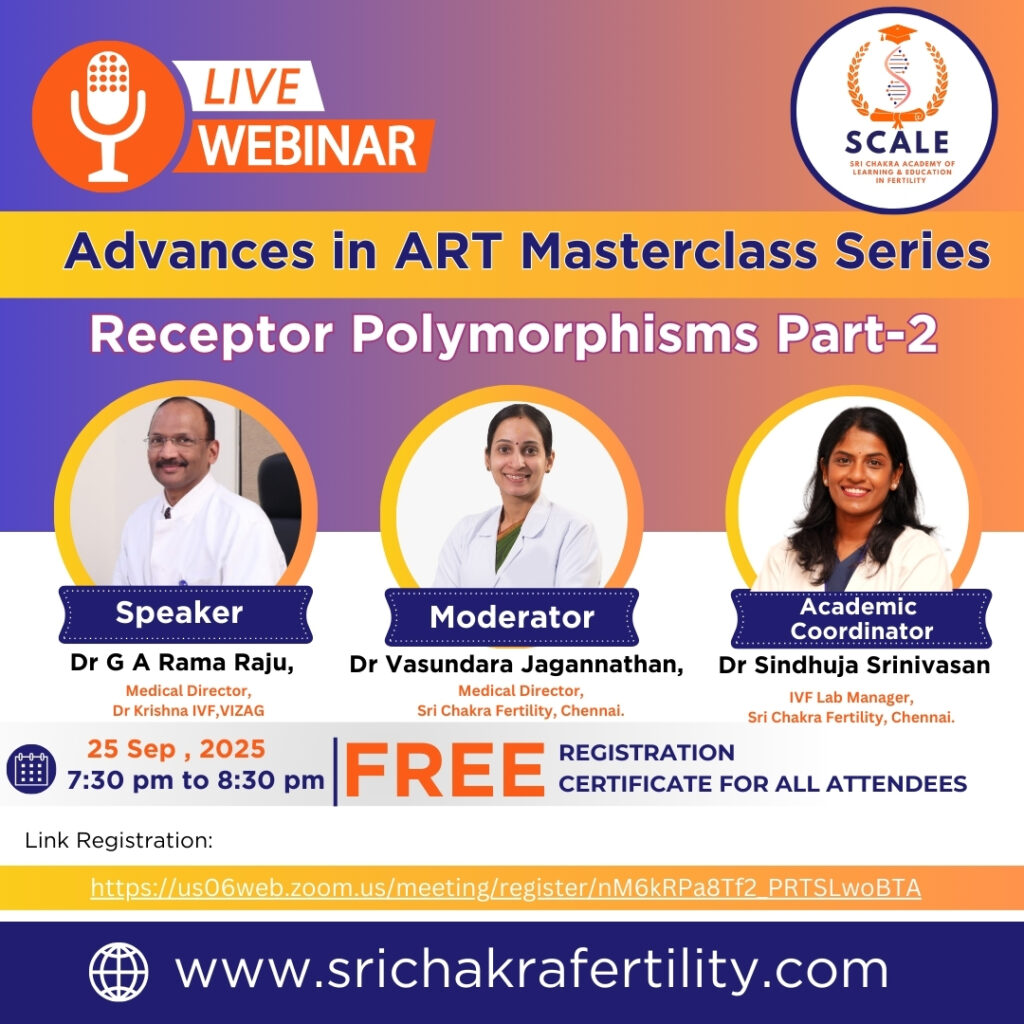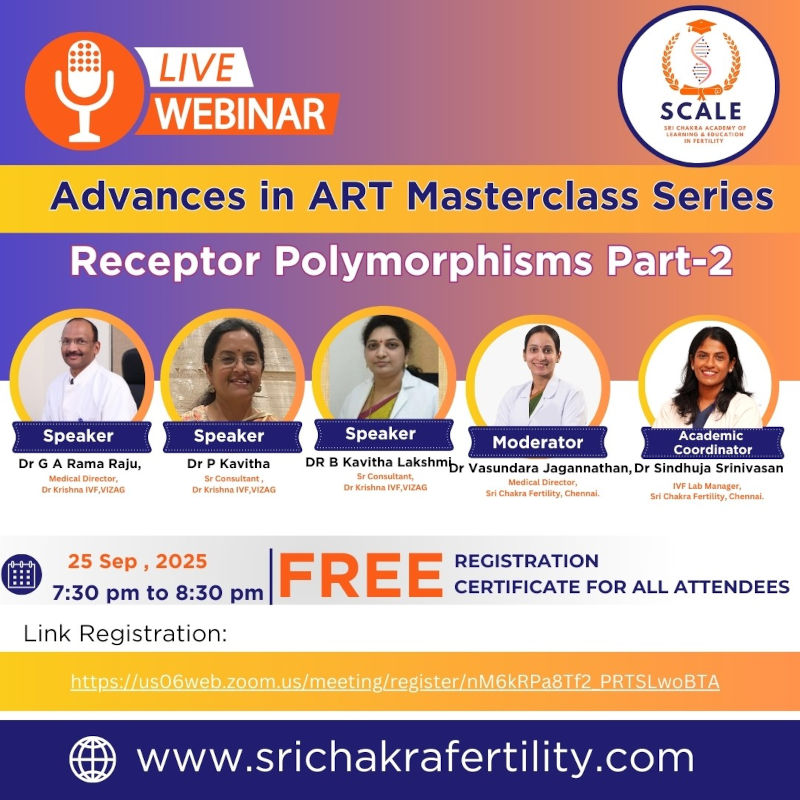Advances in ART Masterclass Series : Receptor Polymorphisms
Advancing Fertility Care: A Deep Dive into Receptor Polymorphisms and Personalized IVF at Krishna IVF
At Krishna IVF, our commitment to advancing reproductive medicine is at the heart of everything we do. We are proud to be at the forefront of research that combines clinical expertise with cutting-edge genetic insights. Our latest work, presented at the “Advances in ART Masterclass Series: Receptor Polymorphisms Part-2” webinar, offers a deeper understanding of how genetic markers can refine personalized fertility treatment.
The masterclass featured our very own Medical Director, Dr. G A Rama Raju, along with Sr. Consultants Dr. P Kavitha and Dr. B Kavitha Lakshmi.

They shared the findings from our single- center, retrospective study of 1,714 agonist-protocol cycles, which aimed to clarify the role of FSHR and LHCGR polymorphisms in IVF outcomes.

The Foundation of Fertility: Phenotype still dominates
Our research reaffirmed that the most powerful predictors of IVF success remain classic clinical markers: a patient’s age, Antral Follicle Count (AFC), and Body Mass Index (BMI). Across all our models, these factors consistently outperformed genotype data in predicting ovarian response and pregnancy outcomes. This underscores that our core approach to Controlled Ovarian Stimulation (COS) must remain rooted in these observable traits.
The Nuance of Genetics: A Powerful Tool for Fine-Tuning
While individual genetic markers like the FSHR-29 promoter variant showed limited standalone utility, the true value emerged when we analyzed genetic combinations.
We found that the FSHR-29 variants did not significantly impact the total dose of r-hFSH required, nor did they have a predictive value for live birth.
However, our most significant discovery came from analyzing the combined effects of the FSHR N680S and LHCGR N312S genotypes. This dual-marker approach provided stronger clinical differentiation than a single SNP analysis.
• Predicting Outcomes: We found a clear, statistically significant difference in clinical pregnancy and live birth rates across different genotype groups. For example, the FSHR680 GG / LHCGR312 GG combination yielded the highest clinical pregnancy rate (~55.6%) and live birth rate (~38.9%).
• Guiding Dosing: We also found that the FSHR N680S variant showed a stronger dose effect in older women (over 35), with the AA genotype requiring the highest total r-hFSH dose. These genetic insights can inform minor adjustments to r-hFSH dosing typically a difference of 200–350 IU especially for borderline responders.
Looking Forward: The Future of Personalized IVF
Our research demonstrates that while phenotype remains the standard for guiding IVF protocols, genetic information can play a crucial adjunctive role.

It can serve as a “tie-breaker” in ambiguous scenarios, helping clinicians fine-tune decisions on stimulation protocols or LH supplementation.
This is a major step forward in personalized fertility care. We are committed to using all available data – both clinical and genetic – to provide our patients with the best possible chance of success.
Webinar Details:
The full findings were discussed in a free webinar on September 25, 2025, from 7:30 PM to 8:30 PM. A registration certificate was provided to all attendees.
